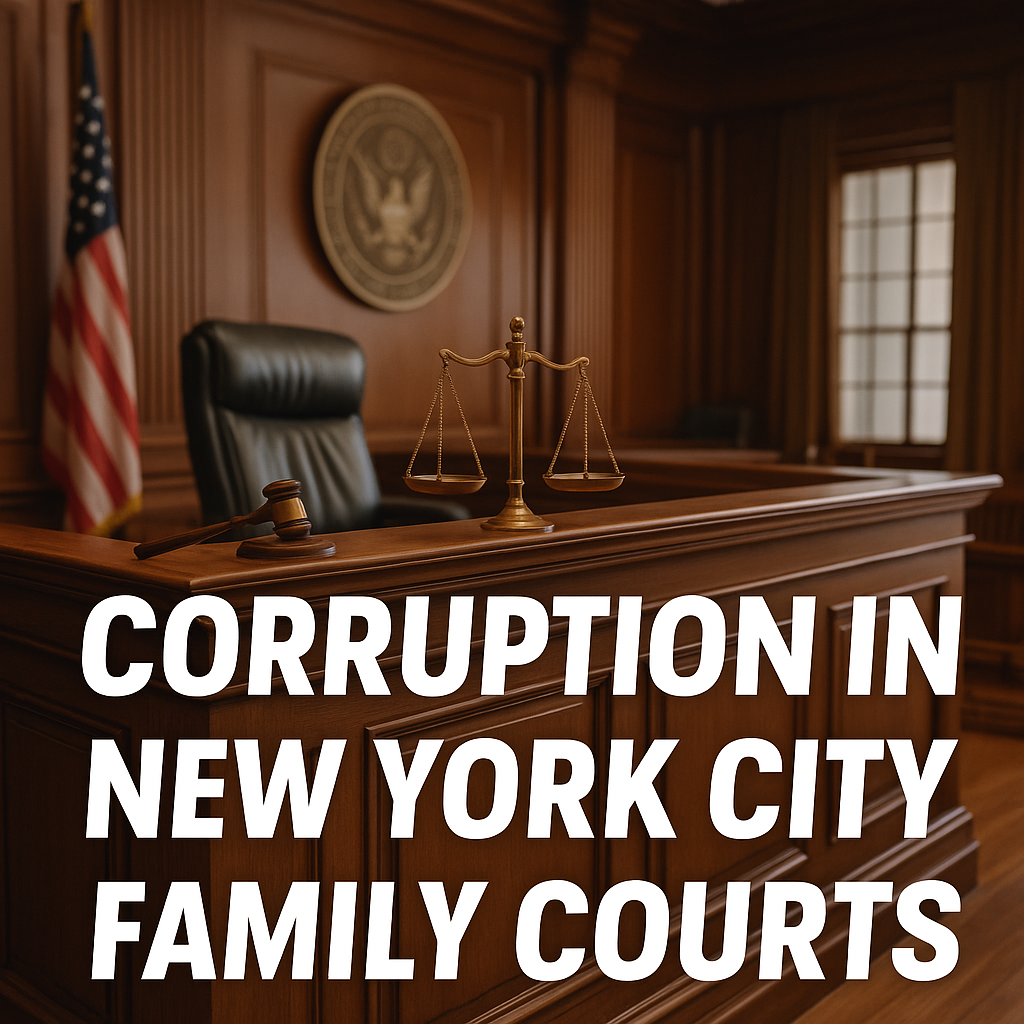
SUMMARY: An exposé on the systemic dysfunction in New York City’s Family Court system. From endless delays to sealed decisions and unchecked bias, Part 1 of this series lays bare how families—especially vulnerable children—are failed by the very courts meant to protect them.
EDITORIAL SERIES: PART 1 of 7
By Yevgen Fromer, Editor – Real Divorce Stories
System Failure at Every Level: When Courts Fail the Families They Were Built to Protect
For thousands of families in New York City, the family court system isn’t a refuge—it’s a labyrinth. A slow, broken maze of missed hearings, overloaded judges, paper‑thin evaluations, secret decisions, and trauma that lingers for years. Custody rulings are treated like transactions. The vulnerable are treated like threats. And justice—if it exists at all—often favors the wealthy, the connected, or the corrupt.
Delays That Devastate
According to a 2019 report by The Imprint, NYC Family Court experiences over 2,000 delays monthly. In extreme cases, parents wait more than a year for a single custody ruling. Children may be stuck in foster care, protective parents sidelined, and abusers empowered by inaction.
The New York City Bar Association called the system “in crisis.” Many judges are untrained in trauma and domestic abuse. Attorneys are underpaid and overworked. Bias—racial, gendered, and economic—creeps into decisions without recourse.
📄 See also: Citation Archive
Secrecy or Shield for Misconduct?
Family Court’s “confidentiality” is supposed to protect minors. But in practice, it often hides unethical behavior. There are no juries. No press. No transcripts for public review. Evidence, testimonies, and even final rulings are sealed—sometimes permanently.
A 2023 investigation by ProPublica revealed how deeply flawed psychological evaluations contributed to poor judicial outcomes. And still, transcripts remain sealed, victims silenced, and appeals nearly impossible.
📄 Citation link: Citation Archive
Who’s Profiting from the Chaos?
Every month that a case drags on, lawyers, supervisors, and court evaluators bill families for their services. Families spend tens of thousands to defend their rights—while some judges refuse to even hear evidence.
In Part 2 of this series, we’ll examine actual cases where judges were removed, sanctioned, or named in complaints—some accused of favoritism or outright misconduct.
Two Systems of Justice
Wealthy litigants can afford “custody consultants,” forensic evaluators, and teams of attorneys. But most working-class families are left to represent themselves against experienced legal opposition.
This imbalance—of money, language, race, and access—leads to one-sided decisions, ruined lives, and children caught in legal warfare.
When Will It End?
How many judges must be caught before real oversight begins? How many ACS workers and GALs will be allowed to act without scrutiny? How many sealed records must remain closed while injustice multiplies?
Even after resignations and lawsuits, the system remains broken. And nearly everyone involved knows it.
🧾 Citations You Can Review
All sources for this editorial have been cited in our dedicated archive. You can review:
💬 Share Your Story
Have you been silenced by the family court system? You are not alone. We welcome submissions from all individuals, anonymously or not, to help document the truth.
Coming Next: Judges for Sale
Tomorrow in Part 2, we dive into public records of judges who ignored evidence, accepted campaign donations from litigants’ law firms, or were disqualified for unethical behavior.
Help us expose what’s been hidden for too long.
Disclaimer: This editorial is based on publicly available investigations, court documents, and legal filings. Allegations remain allegations unless legally proven. All citations are provided for transparency and editorial responsibility.
